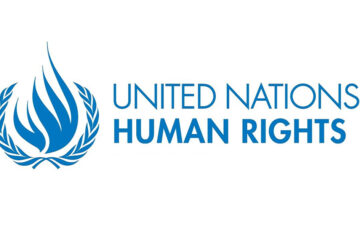 Every year, we celebrate the International Women’s day all over the world, marked by incredible activities, events, projects and traditions.
Every year, we celebrate the International Women’s day all over the world, marked by incredible activities, events, projects and traditions.
To mark the 105th International Women’s Day, over 25 women’s organizations marched together from Doroteo Jose Metro Train Station to Mendiola in Manila.
Below is the Press Statement released on March 8, 2016 by women’s organizations.
Women Challenge Candidates on Track Record and Position on: Job Contractualization, Climate Change, Violence against Women and Militarism
Women work. Women provide. Women produce for family, community, and society.
However, social systems, political institutions, economic interests, and cultural and ideological impositions continue to prevent women from fully realizing our rights for decent work and future as well as for a safe and secure life.
In the Philippines, economic insecurity—especially caused by job contractualization, limited or even lack of access to resources, and climate crisis-induced poverty—continues to prevail, while violence against women intensifies, including against the LBT community. This is aggravated by militarism by both the US and national government, as seen in Mindanao.
There remains to be a wide gap in terms of opportunities and spaces for women’s work, with women’s participation in the Philippine labor force only at 53 percent while male workers comprise 82 percent. Women’s participation in paid work is constrained by unpaid domestic and care work, and lack of productive employment opportunities. This situation forces women to take the migration option and work on jobs quite vulnerable to abuses and exploitation as protection mechanisms are sorely lacking in many countries of destination, both in terms of policies and practice. Migrant domestic workers constitute a third of the country’s annual deployment of new hires.
There are fewer resources for women and children in rural areas, in indigenous and Moro communities, in groups with diverse sexual orientation and gender orientation, and with disability. Rural women experience ‘time poverty’, as they work 4 to 5 hours longer than men. There is limited access to resources such as land and credit: only 1/4 of lands distributed under the Philippine agrarian reform law have been awarded directly to women and of the total available agricultural credit, less than one percent has been accessed by women. Meanwhile, women and girls account for around 60 percent of the world’s chronically hungry, says the World Food Programme.
Ninety percent of the remaining forests and protected areas are within the indigenous peoples’ ancestral domains, yet a large part of these overlap with mining tenements. These destruction and extraction of natural resources, the food base and sources of livelihood of indigenous women, make them more vulnerable to economic dislocation, political exclusion and other forms of violence.
As more forests are denuded, and mountains flattened by extractive industry, the impacts of climate change are worsened – on one hand, longer dry spell, and drought; while on the other, more rainfall, and sea level rise. These exacerbate hunger among the indigenous communities and rural poor, and expose their lives to more risks – flooding, and landslides. Additionally, because of discrimination, and gender bias, the burden to indigenous women is multiplied, making them among the poorest, and the hungriest.
In the midst of corporate contests over land and territories, we witness killings of indigenous and Moro peoples. Their continued displacement renders the women vulnerable to other forms of abuses, including illegal recruitment, trafficking and prostitution.
Further aggravating gender-based inequality and oppression are the denial of reproductive and sexual rights of women, violence against women, including against lesbian, bisexual and transgender sisters. One of the latest of these killings was that of Jennifer Laude by a US soldier. The perpetrator, while convicted, was given a sentence lower than murder and remains virtually in US custody with their own men guarding him in Camp Aguinaldo, instead of in the New Bilibid Prison.
With stepped-up militarism resulting from the PNoy government’s signing of the Enhanced Defense Cooperation Agreement (EDCA) with the United States, an agreement which serves as the latter’s instrument for its so-called Asia-Pacific pivot, prostitution and other forms of violence against women are expected to rise. One of the greatest costs of this surrender of sovereignty is the surrender of women’s safety and that of the environment.
As Filipino women march on with their struggles to overcome inequality, exploitation, marginalization, will we find allies in the present and future leaders of our country? Will the coming elections bring solutions to our current conditions?
Women have learned for a long time now that we have to fight for and persistently defend our bodies, our land, our gains in struggle. We know that we will not get what we need and want on a silver platter. We have to push for the women’s agenda before our presidential, legislative, and local candidates, and refuse to be sidelined. We will march and fight for a more economically and politically secure life and future for ourselves and our children.
Women, let us defend our bodies, our lives, our land and territories from corporatism, patriarchy and militarism!
Signatories:
Action against Violence and Exploitation, Inc. (ACTVE) • Bagong Kamalayan • Buklod • CATW-AP • Center for Migrant Advocacy (CMA) • Focus on the Global South • Foundation for Media Alternatives (FMA) • Freedom from Debt Coalition – Women’s Committee • KAISA-KA • KAMP • LILAK (Purple Action for Indigenous Women’s Rights) • Partido Lakas ng Masa (PLM) • Partido ng Manggagawa • PAHRA • Piglas Kababaihan • Pambansang Koalisyon ng Kababaihan sa Kanayunan (PKKK) • SARILAYA • SENTRO – Women • Stop the War Coalition • Transform Asia • WomanHealth Phils. • Women’s Legal and Human Rights Bureau (WLB) • Women’s Crisis Center • Youth and Students Advancing Gender Equality (YSAGE) • World March of Women – Pilipinas • numerous courageous individuals
![]()



0 Comments